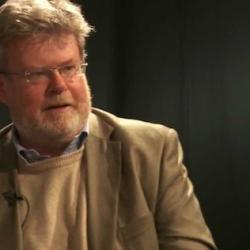In a 2013 essay evaluating the Parliamentary bill on gay marriage, John Milbank observes that British “legislators have recognised that it would be intolerable to define gay marriage in terms equivalent to ‘consummation,’ or to permit ‘adultery’ as legitimate ground for gay divorce.” In these decisions, “the legislators have been forced tacitly to admit the different nature of both gay sexuality and of gay sociality. But such an admission destroys the assumption behind the legislation and the coherence of what the legislation proposes to enact.”
Milbank doesn’t think it will stop there. If gay adultery has no legal force, then, on the assumption of equality, heterosexual adultery will also cease to be grounds for divorce. After all, “if the binding and loosing of gay and straight marriage are stipulated in different ways,” then the distinctions that gay marriage is designed to eliminate is reinstated. In Milbank’s view, “secular thought will not so readily let go of the demand for absolutely equal rights based on identical definitions. In that case, we face an altogether more drastic prospect. Not only would ‘marriage’ have been redefined so as to include gay marriage, it would inevitably be redefined even for heterosexual people in homosexual terms. Thus ‘consummation’ and ‘adultery’ would cease to be seen as having any relevance to the binding and loosing of straight unions.”
In short, gay marriage is not an expansion of marriage to include a new set of relationships. It undermines marriage as such, and thus tends to make marriage, not just gay marriage, impossible.
Milbank further argues that gay marriage is not about gay rights per se but instead about the modern state’s continuing expansion of its power and persistent elimination of all rivals. Legalization of gay marriage “would end public recognition of the importance of marriage as a union of sexual difference. But the joining together and harmonisation of the asymmetrical perspectives of the two sexes are crucial both to kinship relations over time and to social peace.”
This union of difference “has always been the very ‘grammar’ of social relating as such. The abandonment of this grammar would thus imply a society no longer primarily constituted by extended kinship, but rather by state control and merely monetary exchange and reproduction.” From this angle, the push for gay marriage appears as “a strategic move in the modern state’s drive to assume direct control over the reproduction of the population, bypassing our interpersonal encounters. This is not about natural justice, but the desire on the part of biopolitical tyranny to destroy marriage and the family as the most fundamental mediating social institution.”
He acknowledges that these lines have already been crossed with the allowance of sperm donation and surrogate motherhood, both of which invite “psychological confusion, family division and social conflict.” Britain (and America too) has “sleep-walked into the legalisation of practices whose logic and implications have never been seriously debated.”
Milbank suggests that the church’s best response may be to take marriage more fully into the church: “in order to safeguard the churches from pressures to conform to the norm, we should now welcome a withdrawal from the churches of their rights as a civil marriage broker. This would leave the churches free, in their turn, to claim that only natural and sacramental marriage are genuinely ‘marriage,’ while state marriage is mere civil union. They could trump secularisation by declaring that the era of civil marriage had been a failed experiment.” Instead of ceding marriage and reproduction to the state, the church might have an opportunity to affirm and bolster the mediating institution of marriage and family.
(Reposted from May 2013.)















